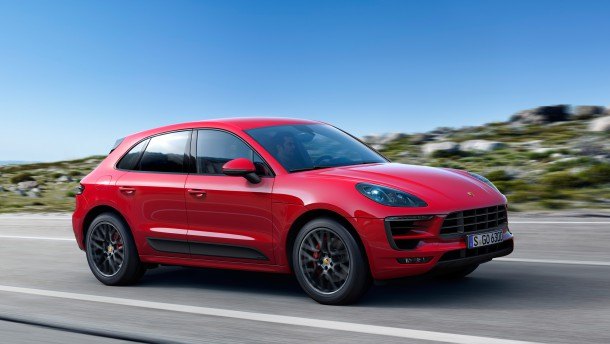#ConsumerElectronicsShow
About That Google, Ford Partnership …
Ford CEO Mark Fields just wrapped up his Consumer Electronics Show keynote speech Tuesday morning and mentioned the word “Google” exactly zero times. Nada. Zip. Zilch.
So, um, where does that leave the current planned partnership between the global automaker and Google to build self-driving cars and let them roam free at a 1,000-acre North Carolina ranch?
Not dead, maybe — just not fully baked, apparently.
TTAC News Round-up: Ford's Self-driving Herd Gets Bigger, Takata's All Alone, VW Sends The Cavalry
It certainly sounds like Ford is close to selling a self-driving Fusion real soon.
That, Matthias Müller finally comes to the U.S. to ask “You mad, bro?” Nissan has no love for Takata, and business is hot south of the border … after the break!
TTAC News Round-up: Pumped About Porsche; GM's Going To Trial; And Diesel's Dead, Baby
Man, people are really pumped about the cool, expensive cars they just bought.
That nugget of wisdom, Russia’s perpetual Cash for Clunkers program, VW’s appeal to Colorado and Washington buyers and GM’s knows what way the wind is blowing now … after the break!
Volkswagen Slated To Show Yet Another Microbus Concept
Multiple outlets are reporting that the vehicle seen in this teaser photo from Volkswagen is none other than an electrified version of the Microbus concept and it will debut at the Consumer Electronics Show next month. The photo follows an earlier report by Autocar (which has since been updated with the same photo and new text) that said Volkswagen would bring a new Microbus to the Las Vegas convention.
We won’t disagree. We also won’t hold our breath for a production model.
LEAKED: Volkswagen Might Show This Full TFT Display, Infotainment System at CES (Video)
Volkswagen announced Friday it would show off “developments in electromobility as well as the next generation of connectivity” at the Consumer Electronics Show next month in Las Vegas.
“For instance, Volkswagen will give quite a clear glimpse of the latest developments in in-car infotainment that are on the verge of being launched onto the market. This will see innovations such as the Golf R Touch concept car finding their way into Volkswagen’s broad product portfolio,” the automaker said in a statement.
That’s probably possibly what we’re looking at here in a B-roll video made by the automaker obtained by TTAC through less-than-official channels.
Faraday Future Has An Electric Car to Show Next Month At CES
Faraday Future, the other, other bespoke electric luxury carmaking startup said they’ll show off their concept for the “future of mobility” next month at the Consumer Electronics Show in Las Vegas.
The automaker’s website sports a clock counting down to 7 p.m. (Pacific) Jan. 4, 2016, for the automaker’s unveiling. The company has made several high-profile hires, including head of engineering Nick Sampson who helped Tesla design chassis for their cars, according to The Verge.
In an interview with the website, Sampson said the company expects to roughly double from 400 employees now and challenge other automakers soon. The company announced last month that its looking to invest $1 billion in a factory in California, Georgia, Louisiana or Nevada.
GPS Tracking: Catch This Fly With Honey
Photo courtesy of media.ford.com
Last week, Ford’s Global VP of Marketing and Sales, Jim Farley, told a panel discussion at the Consumer Electronics Show in Las Vegas that Ford has access to data on its customers’ driving habits via the GPS system installed in their cars. “We know everyone who breaks the law, we know when you’re doing it. We have GPS in your car, so we know what you’re doing. By the way, we don’t supply that data to anyone,” he said. The next day Mr. Farley adjusted his statement to avoid giving the wrong impression saying that the statement was hypothetical and that Ford does not routinely collect information on, or otherwise track, drivers through their GPS systems without those drivers’ consent and approval. That approval comes from turning on and opting into specific services like 911 Assist and something called Sync Services Directions, a system that links the GPS system to users’ cellular phones. So that’s that, right?




















Recent Comments